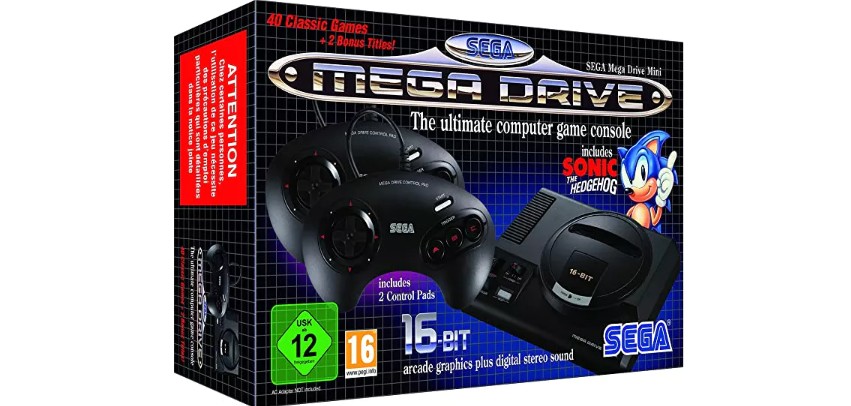Diese Webseite benutzt Cookies, um die Benutzererfahrung zu verbessern.
SEGA: "We are not a retro company"
Fri Dec 20 2024
SEGA: "We are not a retro company"
In an interview with The Guardian on Friday, Shuji Utsumi, the current CEO of Sega America and Europe, expressed his misgivings about retro and announced his intention to focus on the future.
Taking advantage of Nintendo's success with its NES Mini in November 2016 and its Super NES Mini in September 2017, SEGA quickly jumped on the mini-console bandwagon with the Mega Drive Mini in September 2019 (which is therefore SEGA's last official console born after the Dreamcast).
The Japanese firm then repeated the experiment with the Game Gear Mini in October 2020 (reserved for the Japanese market) and the Mega Drive Mini 2 in October 2022.
The strategy was simple: play on gamers' nostalgia by offering miniaturised replicas of the consoles of the time, with between 40 and 60 games pre-installed (depending on the model and the region of release).

Although the development of such devices seems inexpensive, SEGA does not (for the time being) seem to want to prolong the experiment. While sales figures for SEGA Minis are hard to come by (we do know, however, that Nintendo has been very satisfied with its sales), the company justifies this choice with a vision of SEGA's development that is more oriented towards the future than the past.
I have no intention of going down the Mini route. That's not who I am. I want to adapt to modern players, said Utsumi.
We are not a retro company. We really appreciate our heritage, we value it, but at the same time, we want to offer something new, otherwise we will become ancient history. That's not our goal, says the chairman, who joined SEGA in 1996.
This statement could not be clearer, at least as far as the hardware is concerned, as SEGA makes no secret of the reboot projects it is currently working on or has in the pipeline (Shinobi, Crazy Taxi, Jet Set Radio, Streets of Rage, Golden Axe, etc.).
Photos: SEGA